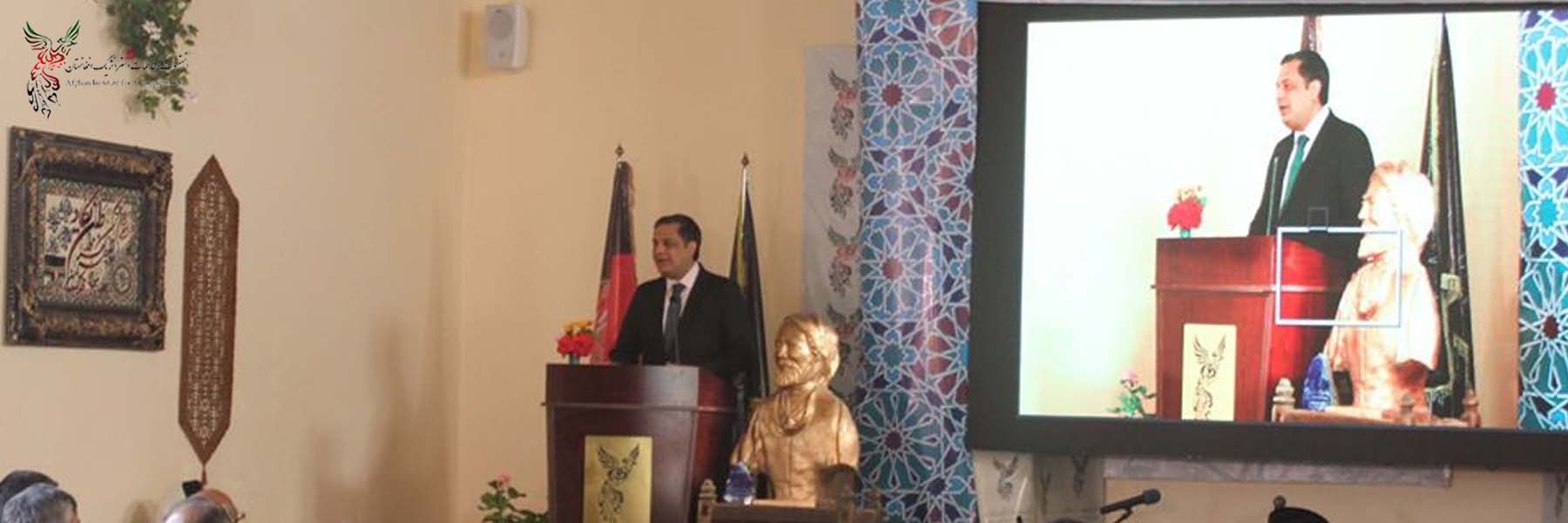Avicenna International Award for Intercultural Cooperation for Peace-II
On Wednesday, November 13, 2019, the Afghan Institute for Strategic Studies (AISS), held the second Awarding Ceremony of "Avicenna International Peace Award: Intercultural Cooperation for Peace" with the presence of distinguished academics, ambassadors & diplomats, civil society members and media representatives attending the event. Avicenna Peace Award aims to honor the distinguished individual(s) and institution(s) whose efforts have significantly contributed to solving complex conflicts. The program included statement by Honorable Rached Al-Ghannouchi, speech by distinguished scholars, Dr. Michael Barry and Prof. Eshraq Hussaini, speech by member of Helmand Peace Marchers (People’s Peace Movement), Sufi Music and solo music performances by Leqa Group and Rabia.
This year's award was awarded to Rached Al-Ghannouchi, Tunisian politician and thinker, co-founder and intellectual leader of the Ennahdha Party. Ghannouchi was named one of Time's 100 Most Influential People in the World in 2012 and Foreign Policy's Top 100 Global Thinkers and was awarded the Chatham House Prize in 2012 (alongside Tunisian President Moncef Marzouki) by Prince Andrew, Duke of York, for "the successful compromises each achieved during Tunisia's democratic transition". In 2016 he received the Jamnalal Bajaj Award for "promoting Gandhian values outside India".
At the beginning of the program Dr Davood Moradian, Director General of AISS spoke about importance of celebrating individuals that work towards promoting peace. He stated that this week as we celebrate the birthday of Prophet Mohammad (PBUH), the Fall of Berlin Wall, birthday of Allama Iqbal Lahori, and birthday of Guru Nanak, we are here to celebrate the work of Rache Al-Ghannouchi. Noting that Guru Nanak promoted sustainable peace, he said he wishes all the ongoing peace efforts lead to sustainable peace in Afghanistan.
Prof. Dr. Michael Barry, last year’s recipient of Avicenna Award noted that it is important that we celebrate Al-Ghannouchi as a symbol of tolerance. Dr. Michael Barry also said that peace cannot occur without democracy. He emphasized on preserving the Afghan democracy to build a sustainable peace in the country.
The third speaker of the ceremony was Professor Sayed Hussain Eshraq Hussaini, Kabul University lecturer. Prof. Hussaini spoke about the work of Rached Al-Ghannouchi to promote peace and tolerance in the Islamic Society and Islamic countries. He also spoke about freedom and democracy. He said that Al-Ghannouchi emphasized on Islam of forgiveness rather than political Islam.
The last speaker of the program, Mohammad Nikzada, member of People’s Peace Movement, spoke about their journey across Afghanistan to promoted peace and demand all sides for ceasefire.
Amb. Arief Rachman, Ambassador of Indonesia to Afghanistan, received 2019’s Avicenna Award on Behalf of Honorable Rached Al-Ghannouchi.

